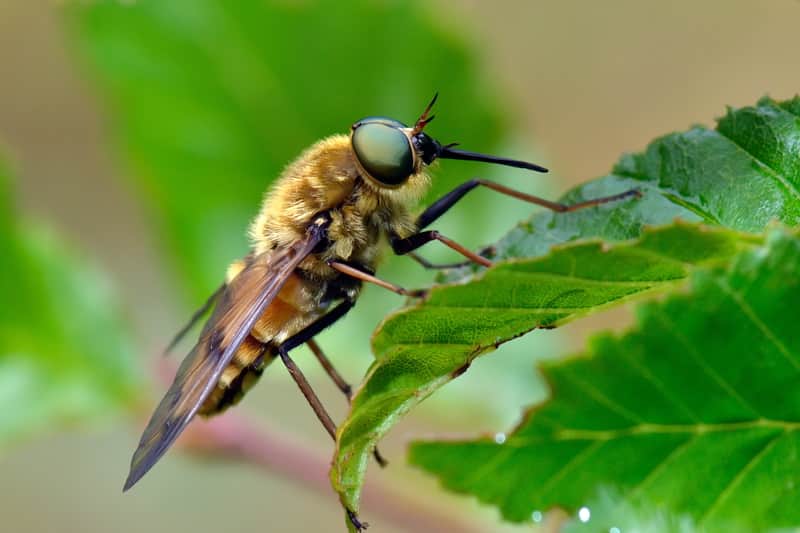There aren't a whole lot of things more irritating than a fly buzzing in your ear. That is, of course, unless that fly is a biting fly. While most of the flies human beings commonly encounter do not bite, some can, including the horse fly.

If you've ever dealt with horse flies, you know their bites can be painful. But are horse fly bites harmful to you or your pets? And what can you do to help ensure you don't get bit?
What Is A Horse Fly?
Horse flies resemble large house flies. They are black and brown in color and have iridescent eyes. Some horse flies have transparent wings while others have very dark, almost black, wings. These flies can range in size from .75 inches to 1.25 inches long.
Why Do Horse Flies Bite?
Female horse flies feed on blood. Like female mosquitoes, female horse flies require a protein meal to produce the eggs that will grow into the next generation of horse flies.
Also like mosquitoes, horse flies feed using special mouthparts. However, unlike mosquitoes, which puncture their victim's skin and suck blood through their mouthparts, horse flies are equipped with slicing stylets. Using these tiny blades, horse flies cut open their victim's flesh and drink from the blood that pools in the wound. These bites can result in irritation and swelling.
Horse flies are diurnal, meaning they are active during the day. They prefer to feed on livestock, like cows and horses, hence their name. This can be troublesome as horse flies can carry pathogens that can cause disease in some livestock, which can result in potential economic loss. And unfortunately, horse flies have no issue feasting on humans or pets as well, if given the opportunity.
How to Treat a Horse Fly Bite
According to Healthline, if you've been bitten by a horse fly, first clean the affected area and then treat the bite with an over-the-counter antibiotic ointment or spray to help reduce swelling, pain and irritation.
Healthline then advises for you to monitor the bite for any signs of infection, such as pus and/or a foul odor, and to seek medical attention right away if you notice any unusual signs. This is especially true if you experience more severe signs, like difficulty breathing, a rash or worsening pain.
How to Help Get Rid Of Horse Flies
Horse flies can be rather tricky to get rid of, especially in rural areas where livestock is present. Female horse flies are willing to travel great distances for their feast. If you happen to be around an area where horse flies are a problem, using repellents containing DEET can help provide protection, according to the University of Kentucky College of Agriculture, Food and Environment. If you have a barn or other area where you keep pets or livestock, you can take a few precautions to help keep horse flies at bay. Screen in any animal shelters to help keep horse flies out.
Entomologists with the Agricultural Extension at the University of Missouri have published instructions on how to build several different horse fly traps. Also, make sure to eliminate any standing water, as horse flies prefer to lay their eggs in moist environments. Marshes and swamps are particularly susceptible to horse fly infestations.
Finally, consult with a veterinarian regularly to help keep your animals healthy.



